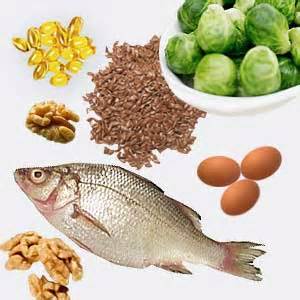Nutrients for Muscle Pain
Excessive exercise and exertion can cause muscle aches and pains due to the muscles being stretched further than normal. After exercise, if your muscles are not given the proper nutrients, they may not be able to fully repair themselves. This results in muscle soreness. Muscles that are not regularly used, may begin to shorten and can lead to stiffness. According to the National Institutes of Health, proper nutrition can help to prevent and relieve muscle soreness.
Omega-3
 According to an article in the “Clinical Journal of Sport Medicine,” the consumption of omega-3 fatty acids can improve muscle soreness following exercise. Omega-3 fats are essential fatty acids in the body that can play a role in reducing inflammation. Reducing inflammation will help reduce muscle soreness and stiffness. Omega-3s can be taken as a supplement form or consumed through your diet. Omega-3s are found in fish, such as salmon, herring and rainbow trout. Other sources include walnuts, flaxseed and flaxseed oil.
According to an article in the “Clinical Journal of Sport Medicine,” the consumption of omega-3 fatty acids can improve muscle soreness following exercise. Omega-3 fats are essential fatty acids in the body that can play a role in reducing inflammation. Reducing inflammation will help reduce muscle soreness and stiffness. Omega-3s can be taken as a supplement form or consumed through your diet. Omega-3s are found in fish, such as salmon, herring and rainbow trout. Other sources include walnuts, flaxseed and flaxseed oil.
Vitamin D
Vitamin D is a fat-soluble vitamin that is essential for maintaining proper calcium metabolism. A deficiency of vitamin D can cause muscle weakness and pain in children and adults. Vitamin D can be made in the skin upon proper exposure to sunlight or it can be obtained from your diet, including canned pink salmon, fortified cow’s milk, fortified cereals and egg yolks. A supplement may also be taken if not enough vitamin D is gained from food or sunlight.
Vitamin C
Vitamin C is an antioxidant that helps to support immune functions and helps protect against colds and infections. Used to create connective tissue, Vitamin C can also help reduce pain and relieve muscle soreness. Sources of vitamin C include citrus fruits such as oranges, lemons and limes.
